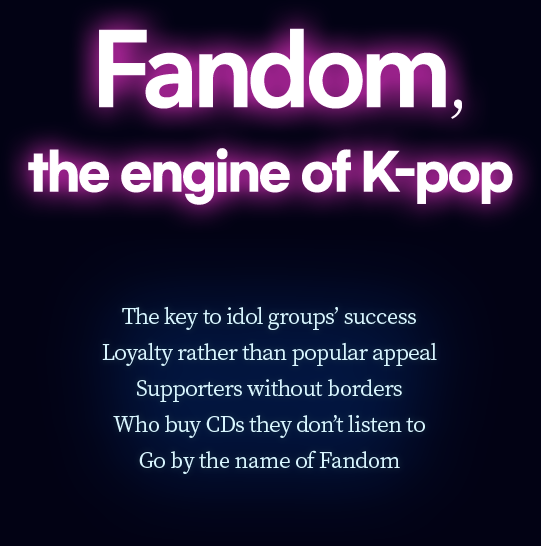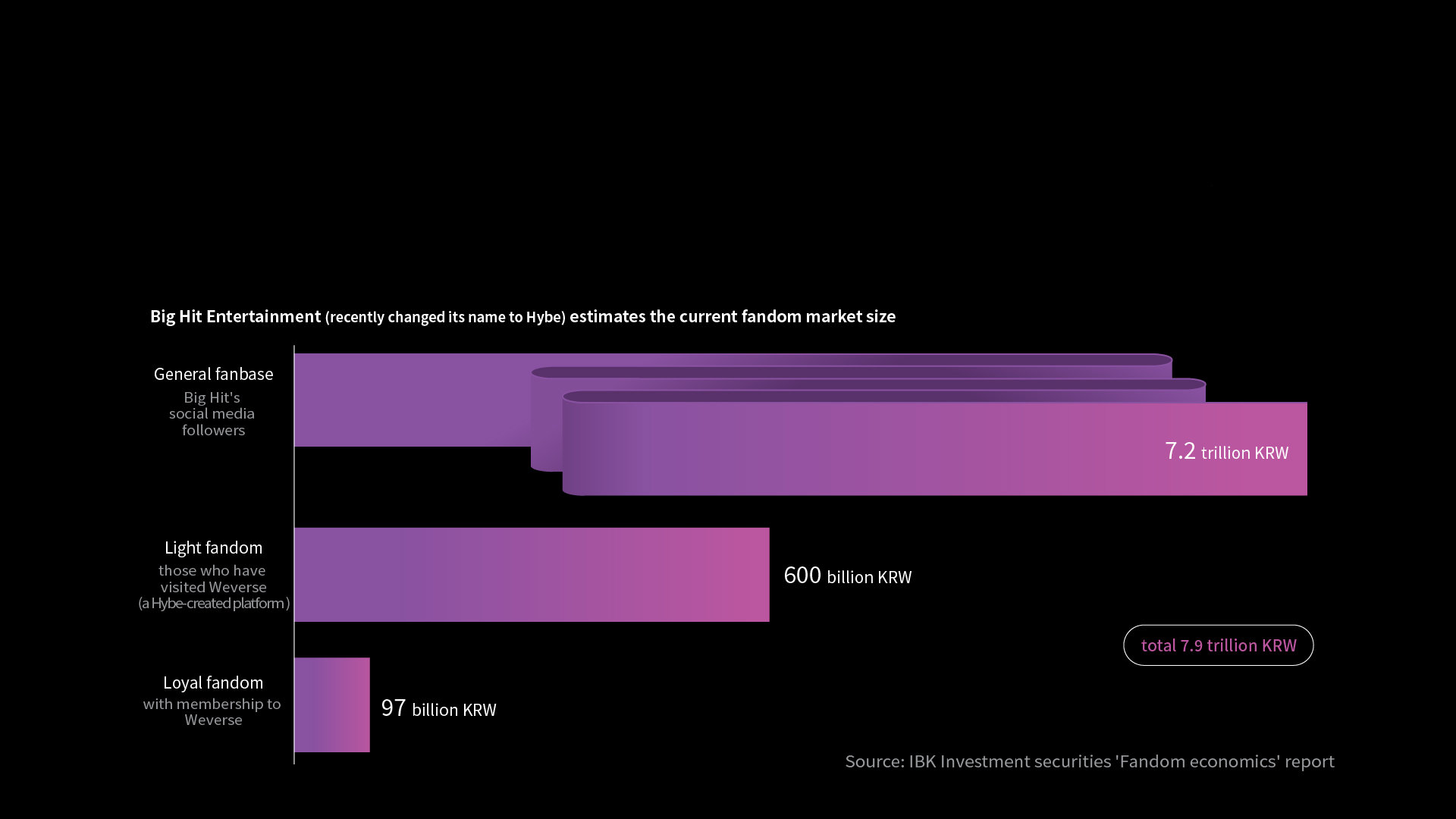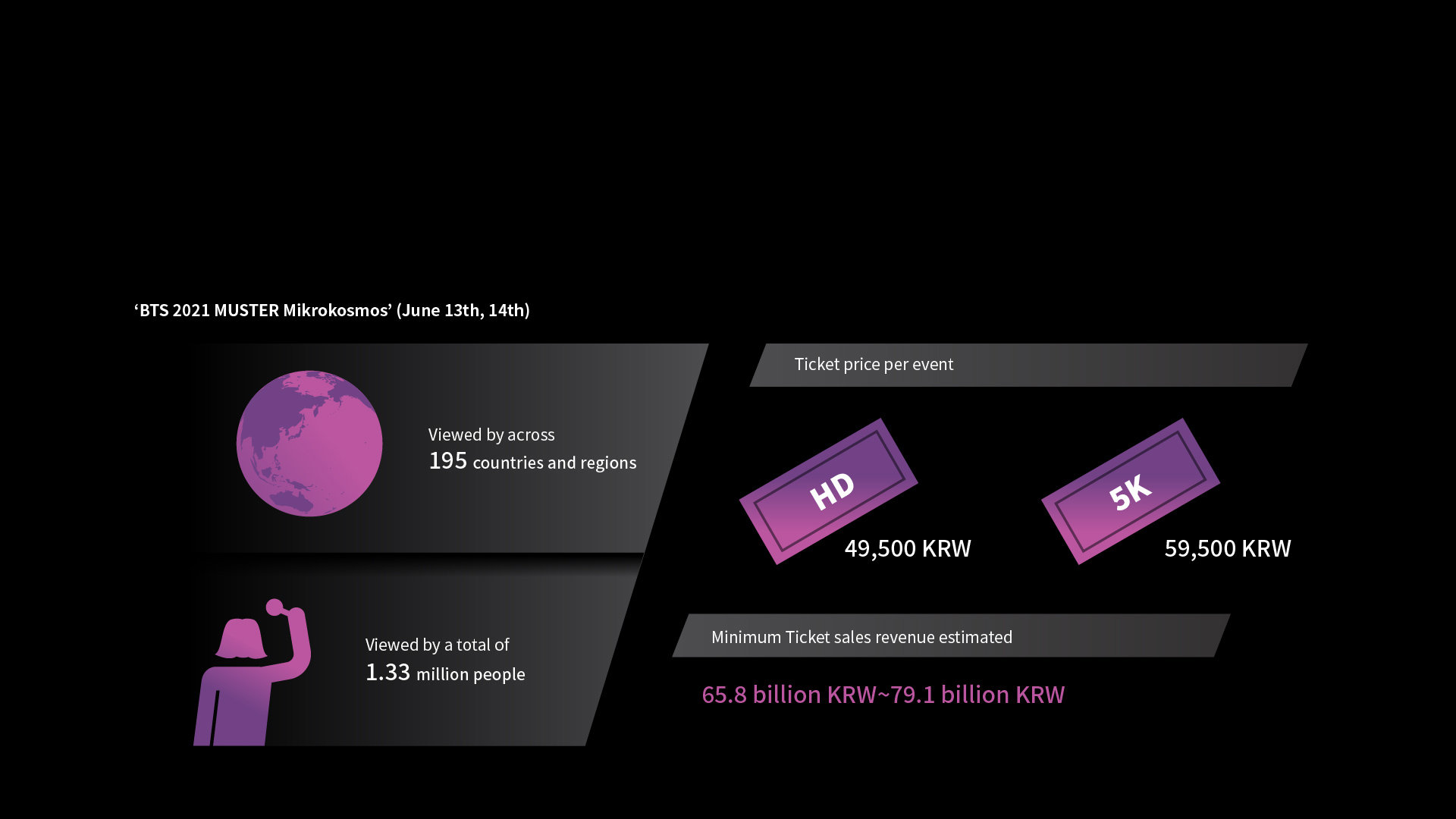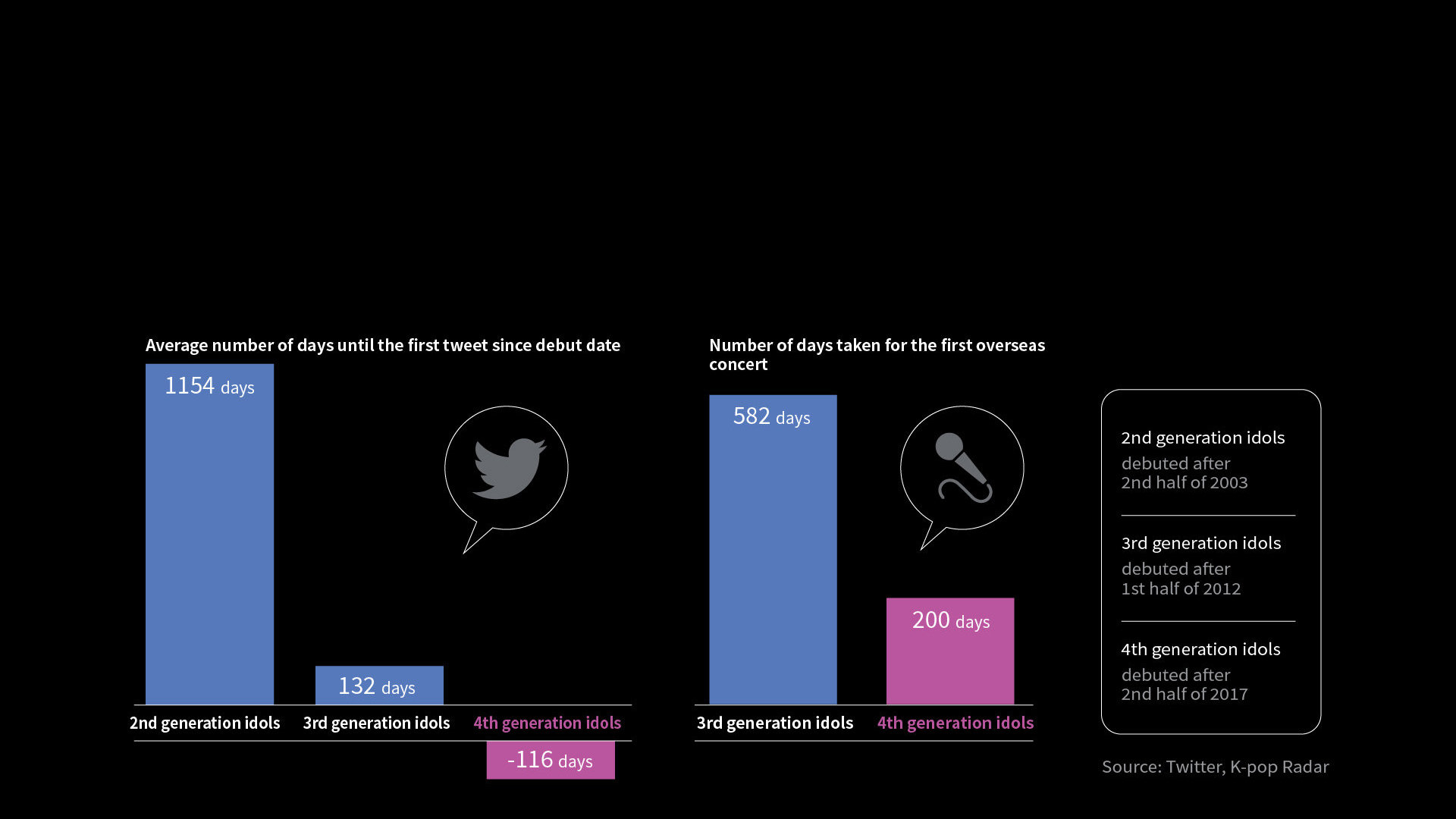



Halfway through BTS's latest single 'Butter's music video, the seven members come together using their bodies to create the word 'A.R.M.Y.', which is the name of the BTS fandom.

Within just 21 hours since its release on YouTube, the music video reached more than a whopping 100 million views, epitomizing the power of A.R.M.Y. spread all across the globe.
One of the biggest drivers behind K-pop idols' success is their phenomenal fan base, just like A.R.M.Y. Whereas idols in the past strived to gain wide popularity among the general public, K-pop idols of late are focused on building a loyal fandom.
In a recent press conference for the launch of an idol audition program 'Loud' on SBS, which joined hands with P-Nation led by singer Psy, and JYP entertainment, JY Park, the head producer of JYP commented on some emerging trends.
One of the biggest drivers behind K-pop idols' success is their phenomenal fan base, just like A.R.M.Y. Whereas idols in the past strived to gain wide popularity among the general public, K-pop idols of late are focused on building a loyal fandom.
In a recent press conference for the launch of an idol audition program 'Loud' on SBS, which joined hands with P-Nation led by singer Psy, and JYP entertainment, JY Park, the head producer of JYP commented on some emerging trends.
"The music industry has shifted. First generation idols were widely known among the public. There was much overlap between idol fans and the general public, but that is no longer the case because there's barely anything in common. Idol fans don't take much interest in what is popular among the masses, and vice versa, as people have no knowledge of what's hot and going viral in the world of idols. If these idols suddenly become viral on a global scale then people belatedly say, 'Oh? I didn't even know they existed, who are they?' - when they start to see the songs on the charts they go 'Who is this group?' It's like two distinctive worlds that have no common ground."
Based on such fandom, K-pop idols are generating a massive market never seen before.

The evidence that fandom is a real and tangible phenomenon lies with the number of albums sold. The way music is consumed has totally upended; album sales have markedly plummeted across the globe.
K-pop idols' album sales, however, have shown an exactly reverse trend.
Many fans buy multiple albums, for the sake of ownership. In addition to CDs, they gather photo books, photo cards and stickers like collectibles.

Ardent fans’ contribution to revenues from performance is almost as sizable as that of album sales.
The ticket sales for BTS's concerts over two days, held online due to the Covid-19 pandemic, exceeded 60 billion KRW.

The most powerful revenue structure emerges when a male idol group meets with female fandom.
“The statistics (that female idols lead consumption of music whereas male idols dominate album sales) show that physical albums sales correlate more with male idols whereas singles relate more to female idols. Such a trend buttresses the widespread stereotype that female idols are widely consumed by the ‘general public’ whereas consumption of male idols is driven by so-called ‘fangirling’. The purchasing power targeting male idols first revolves around albums but then flows to other areas such as merchandise sales at concerts; on the other hand, female idol groups, given their relatively weak fan base, tend to be heavily influenced by external factors other than the music itself.” (Choi Jisun(popular culture critic), author of ‘Is goddess a compliment?’, Sandi(2021), Page 88)
One of the biggest drivers behind K-pop idols’ worldwide fandom is social media. Revealing less to convey a curious image is a strategy of the past; idols these days opt to expose themselves more actively, which in turn expedites the speed of penetration into overseas markets.

“While many foreign artists concentrate on making a single music video, K-pop idols tend to be much closer to their fans. They share so many things with their fans; from working on a new song, dance practices to even more intimate aspects of their everyday life. Fans, on the other hand, don’t stop at just clicking the ‘Like’ button - they write comments and share such contents amongst themselves. Our partners in Korea know that fandom has become a critical element to factor in when planning for important events like a new album release - this kind of approach probably played a major role in fuelling K-pop’s success in recent years.” ( Sun Lee. Head of Music Partnerships, Korea and Greater China & Head of Artist Relations, Asia Pacific, YouTube )
K-pop lyrics are deemed to be another contributing factor in building a borderless fandom, because they are less likely to be dismissed by anyone, and tend to depict healthier and more acceptable ideas.

K-pop is emerging as a major driver behind Korean exports.
Market capitalization of ‘Hybe’, the entertainment company behind BTS, has recently surpassed that of Korea Shipbuilding & Offshore Engineering, one of the key players in Korea’s shipbuilding industry, which boasts a dominant position in the world.
Cultivating K-pop idols has formed an ecosystem of sorts in Korea. Hybe entertainment joined hands with a U.S. media conglomerate and Universal music is investing in producing idol groups, like TRI.BE.
“Just as world famous sports stars hail from the U.S., where basketball courts are on every street and well-equipped sports facilities are easy to find, when it comes to optimized system for singing and dancing, Korea has become the go-to-country these days.” said Tony An, former member of one of the earliest K-pop idols, ‘H.O.T’. His words reflect in part the reason why more teens decide to come to Korea in hopes of becoming world famous singers.
“Just as world famous sports stars hail from the U.S., where basketball courts are on every street and well-equipped sports facilities are easy to find, when it comes to optimized system for singing and dancing, Korea has become the go-to-country these days.” said Tony An, former member of one of the earliest K-pop idols, ‘H.O.T’. His words reflect in part the reason why more teens decide to come to Korea in hopes of becoming world famous singers.
"I'm a long Blackpink fan. To become like them, I first learned how to dance in Japan, then came to Korea to be a better dancer. These days, to become a world class idol singer like Blackpink, you have to make the debut in Korea, which is why I decided to come to Korea" (Mire, a Japanese member in TRI.BE)

July 21, 2021

- ReportingDohyong Kim, Baejung Kim, Bomi Im, Eunji Wi
- PhotographyEunseok Song
- GraphicsChoongmin Kim
- Project ManagementSaemmool Lee, Jihoon Lee
- DesignHyunjung Lee
- Web PublishingDongjin Cho, Hana Kim
- DevelopmentKyungsun Choi, Yuyeol Park



 의 다른 이야기를 만나보세요
의 다른 이야기를 만나보세요

